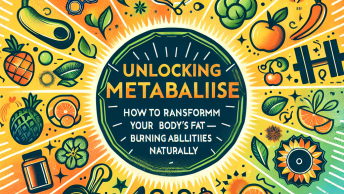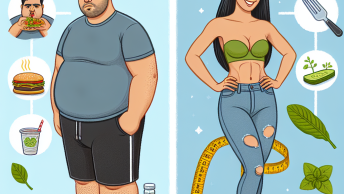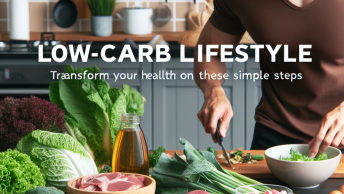10 Simple Tips for Healthier Eating
Embarking on a journey toward healthier eating can seem daunting, yet it is one of the most rewarding endeavors you can undertake for your body and mind. In a world where fast food is often chosen for convenience, making nutritious choices is more important than ever. Here is a concise guide to help elevate your eating habits to a healthier and more fulfilling lifestyle.
1. Embrace Whole Foods
Whole foods are foods that are unprocessed and unrefined, or processed minimally before being consumed. Think fruits, vegetables, whole grains, nuts, and seeds. These foods boast high nutritional value and provide your body with the essential vitamins, minerals, and antioxidants it needs to function optimally.
Tip: Instead of opting for prepackaged snacks, choose a piece of fruit or a handful of nuts for a wholesome and satisfying alternative.
2. Understand Portion Sizes
Even when eating healthy foods, portion size matters. Overeating, even healthy options, can lead to excessive calorie intake. Use visual cues – for example, a serving of protein should be about the size of your palm, while carbs (whole grains) should be about the size of a fist.
Tip: Eating from smaller plates can help trick your brain into feeling satisfied with smaller portions.
3. Hydrate and Conquer
Often we may mistake thirst for hunger, leading to unnecessary snacking. Staying hydrated is essential for maintaining energy levels and bodily functions. Water supports digestion, circulation, absorption, and even helps regulate body temperature.
Tip: Aim for at least 8 glasses a day, and start your morning with a glass of water. Infuse your water with fruits like lemon or cucumber for an extra refreshing flavor.
4. Prioritize Vegetables and Fruits
Load half of your plate with vegetables and fruits. They are rich in fiber, vitamins, and minerals that support your body’s health. Colors are nature’s way of highlighting different nutrients, so eat a variety of colors to ensure a wide range of nutrients.
Tip: Try to include a vegetable or fruit in every meal to achieve balanced and nutritious eating.
5. Mind Your Meat Consumption
While meat can be a great source of protein and iron, it’s crucial to consume it in moderation and choose lean cuts. Reducing your meat intake can lower your risk of diseases like heart disease and can promote better digestive health.
Tip: Incorporate plant-based proteins such as beans, lentils, and tofu into your meals several times a week.
6. Rethink Processed Foods
Highly processed foods are often packed with sugars, unhealthy fats, and sodium. These can increase your risk of health issues such as obesity, diabetes, and heart disease. Limiting these foods can significantly improve your overall health.
Tip: Opt for homemade meals over pre-packaged ones to have better control over what you’re consuming.
7. Snack Wisely
Snacking isn’t necessarily bad if you choose the right items and watch your portions. Instead of reaching for chips or candy, consider healthier options like yogurt, fruit slices, or a smoothie.
Tip: Prepare healthy snacks in advance so they’re readily available when hunger strikes.
8. Cook More at Home
Cooking at home allows you to control the ingredients used and the method of preparation, leading to healthier meals. It also provides an opportunity to select fresh and wholesome ingredients.
Tip: Make meal prepping part of your weekly routine to streamline the cooking process, save time, and reduce reliance on take-out meals.
9. Diversify Your Diet
Eating a variety of foods ensures you get a range of different nutrients that your body needs to thrive. Each food group has different roles, so diversity is key.
Tip: Try to include all food groups in your diet and experiment with new foods and recipes. This also keeps meals exciting and less monotonous.
10. Educate Yourself on Nutrition
Understanding nutrition can significantly influence your eating habits. By knowing what each nutrient does for your body, you can make more informed and intentional decisions.
Tip: Consider reading up on nutrition, subscribing to reputable nutrition websites, or consulting a nutritionist for personalized advice. Click Here to learn more about how you can delve deeper into healthy eating and make informed choices with expert guidance.
Embarking on a healthier eating lifestyle doesn’t mean you have to overhaul your diet overnight. Small incremental changes can lead to significant improvements in your overall health. Plus, these changes can be adopted into long-term habits, ensuring a healthier future. Start today by making small changes like swapping out a sugary snack for a piece of fruit, drinking more water, or cooking a meal at home. Your body will thank you for it!






